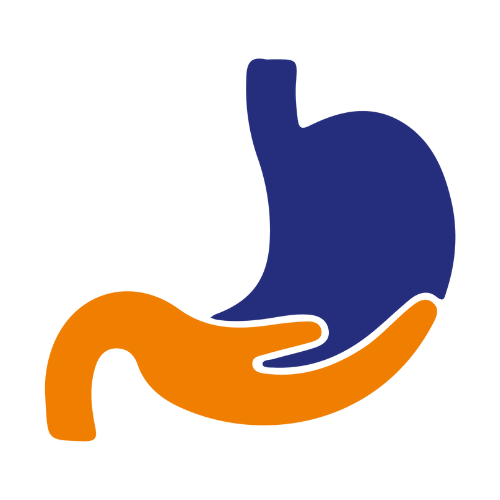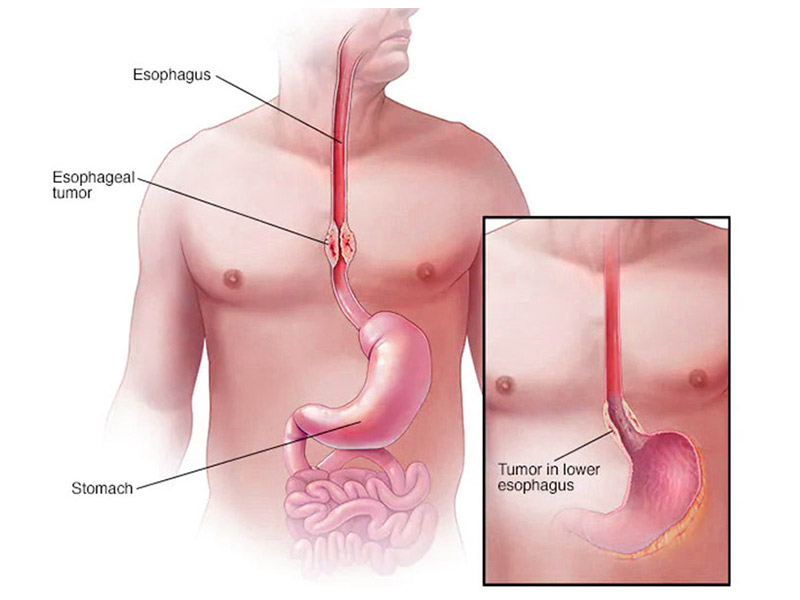Esophageal Cancer
Esophageal cancer can occur when a malignant tumor forms in the lining of the esophagus. Esophagus is a long, hollow tube like structure that runs from the throat to the stomach.
As the tumor grows, it can affect the deep tissues and muscle of the esophagus. A tumor can appear anywhere along the length of the esophagus, including where the esophagus and the stomach meet.
What are the Symptoms?
During the early stages of esophageal cancer, you probably won’t experience any symptoms. As your cancer progresses, you may experience:
- Unintentional weight loss
- Indigestion
- Heartburn
- Pain or difficulty when swallowing
- Frequent choking while eating
- Vomiting
- Food coming back up the esophagus
- Chest pain
- Fatigue
- Chronic cough
- Hiccups
What are the Causes?
As with most cancers, the cause of esophageal cancer isn’t yet known. It’s believed to be related to abnormalities (mutations) in the DNA of the cells related to the esophagus. These mutations signal the cells to multiply more rapidly than normal cells.
These mutations also disrupt the signal for these cells to die when they should. This causes them to accumulate and become tumors.
How is it Diagnosed?
Testing methods for diagnosing esophageal cancer include the following:
- An endoscopy involves the use of an instrument with a camera attached to a tube that goes down your throat and allows your doctor to view the lining of your esophagus to check for abnormalities and irritation.
- A barium swallow is an X-ray imaging test thatallows your doctor to see the lining of your esophagus. To do this, you swallow a chemical called barium while the images are being obtained.
- A biopsy is a process in which your doctor removes a sample of the suspicious tissue with the help of an endoscope and sends it to a lab for testing.
- A CT scan, PET scan, or MRI may be used to see if cancer has spread to other parts of the body.
What are the Risk Factor?
- Excessive Alcohol consumption
- Smoking
- Being Overweight
- Not eating enough fruits & vegetables
- Certain Medical Conditions:Barrett’s
- Oesophagus
- Gastroesophageal Reflux Disease
- Achalasia
How is it Treated?
Surgical Intervention may be good option if the cancer has not spread to other parts of the body. Chemotherapy & Radiation Therapy can be the right course of action in other cases.
- If the tumor is small & has not spread, the tumor can be removed through minimally invasive approach or through open surgery. However, there are certain risks with surgery and these include disorders of the stomach, lung complications, heartburn, difficulty swallowing & infection.
- Chemotherapy involves use of medications to destroy cancer cells. It may be used prior to the surgery or after the surgery. Chemotherapy too has certain side effects such as hair loss, vomiting, pain & fatigue.
- Radiation Therapy uses high frequency beams of radiation to destroy cancer cells. Radiation therapy may be internal or external. Side effects include painful ulcers in the oesophagus, fatigue or pain while swallowing.
Other treatment options include implanting a stent or using photodynamic therapy.

